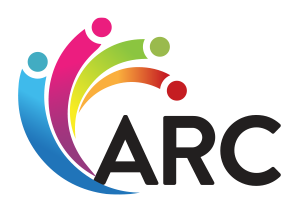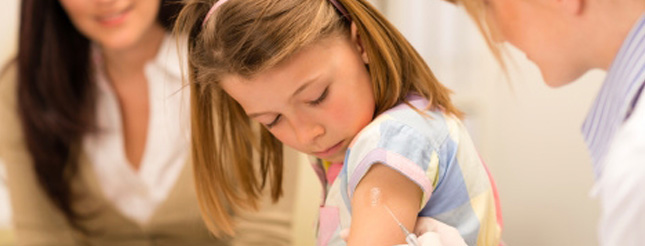Seasonal & Respiratory Illness
Quick Links
Our community is seeing an increase of seasonal respiratory illness—including cold, flu, respiratory syncytial virus (RSV) and COVID-19.
In most cases, these illnesses can be managed at home without prescription medication. In some cases, it is important to seek medical care. If severe symptoms develop, call 911 or go to the emergency department.
Here, you’ll find important information about:
- how to prevent and identify respiratory illness
- health care options available to you
- manage care at home
- when to see a doctor
- when to call 911 or go to the emergency department
Health care options
Consider the following health care options before coming to the hospital
-
Health811 is a free, secure and confidential service Ontarians can access 24 hours a day, seven days a week to receive health advice from a registered nurse by calling 811 (TTY: 1-866-797- 0007), chatting online or navigating to Ontario.ca/health811
-
Contact your family doctor or health care provider
-
Visit iamsick.ca to find a walk-in clinic or assessment centre close to you
-
Talk to your pharmacist
Preventing respiratory illness
- Monitor yourself and your family daily
- Wash your hands often or use hand sanitizer when washing is not possible
- Cough or sneeze into your elbow
- Don’t touch your face
- Stay at home when you’re sick
- Clean (and disinfect) surfaces and shared items
- Wear a mask when in crowded, public indoor spaces
- Stay up-to-date on routine and seasonal vaccinations
Signs and symptoms of respiratory illness
Influenza (the flu)
The flu is a virus that infects the respiratory tract. The flu causes mild to moderate symptoms that last seven 7 to 10 days.
Certain people are at greater risk for complications if they get the flu. This includes older people, young children, pregnant women and people with certain health conditions.
- Fever or feeling feverish/chills
- Cough
- Sore throat
- Runny or stuffy nose
- Muscle or body aches
- Headaches
- Fatigue (very tired)
- Vomiting and/or diarrhoea (most common in children)
Respiratory syncytial virus (RSV)
RSV infects the lungs and airways. RSV usually causes mild symptoms that last a few days. Most children will have at least one RSV infection by the age of two.
Some people with RSV, especially infants younger than six months of age and older adults may need medical care.
- Coughing
- Runny nose
- Fever
- Wheezing
- Decrease in appetite and energy
- Irritability
COVID-19
Managing care at home
Most respiratory illness can be managed at home without prescription medications. Here are some ways to manage symptoms and provide care at home.
Fever or pain
- Use acetaminophen or ibuprofen
- Do not give children Aspirin or products containing acetylsalicylic acid (ASA)
Red eyes and discharge
- Will often resolve without care or medication
- Apply a warm compress
- Use artificial tears
Stuffy and runny nose
- Use a humidifier
- Attempt a saline rinse or use nasal aspirator
Earache
- Will often resolve without care or medication
- Seek medical care if there is discharge, pain lasting more than 72 hours, or if you have had more than 3 ear infections in the last year
Cough
- Use a humidifier
- Have a steam shower
- Go outside or breath in cool air (for barking coughs)
- Take 1-2 teaspoons of honey (not for children less than one year of age)
Fluids
When to see a doctor for respiratory illness
Seek medical care from your doctor or go to a walk-in clinic if you or your loved one:
- Has fever lasting 72 hours or longer
- Has fever that went away for a day or longer (without fever medication) and then came back
- Has an earache lasting more than 48-72 hours
- Are not eating or drinking
- Are at risk of complication due to an underlying health condition
When to seek emergency care for respiratory illness
If severe symptoms develop, call 911 or go to the emergency department.
For adults, severe symptoms include:
- Shortness of breath
- Chest pain
- Loss of consciousness
- Confusion
For children, severe symptoms include:
- Working hard or straining to breathe
- Bluish skin
- Unable to breast feed or drink
- Very sleepy or difficult to wake
- Peeing less than usual
- Fever with rash
- Seizures or convulsions
- Fever in an infant younger than 3 month
Tools & Resources
- Respiratory syncytial virus (RSV) Ontario [Ext.]
- The flu Ontario [Ext.]
- COVID-19 Ontario [Ext.]
Caring for children
- Caring for Children with Respiratory Symptoms OCFP [Ext.]
- Children's Fever and Pain Management JBH [Ext.]
- How to use Acetaminophen or Ibuprofen Tablets Sick Kids [Ext.]
Contact Us:




Facebook
Twitter
YouTube
View Joseph Brant Hospital's Channel